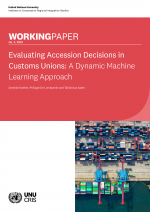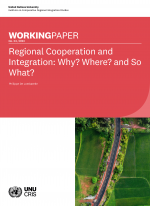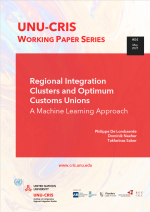Preferential Rules of Origin: Models and Levels of Rulemaking
It has been argued that the proliferation of regional trade agreements (RTAs) since the 1990s has been accompanied by the design and implementation of less transparent, more restrictive and often divergent rules of origin (ROs). These more complex preferential ROs have led to higher transactioncosts (OECD, 2003) and are perceived to have limited the use of formally offered trade preferences (European Commission, 2003a) and, therefore, the trade-expanding effect of preferential agreements (World Bank, 2005: 27, 57). It has been stressed that these preferential rules reflect specific sectoral interests of the regional hegemonic economic powers (Krishna, 2002) and that they have been used as neo-protectionist instruments (Vermulst, 1992; LaNasa, 1996; Schiff and Winters, 2003; Moïsé, 2003b).



